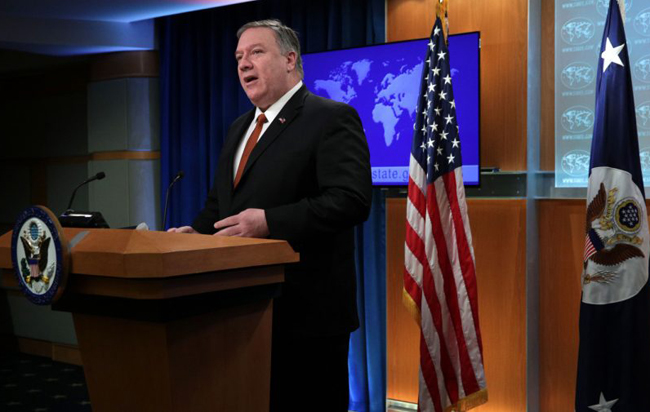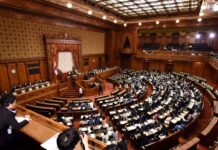
(TibetanReview.net, Mar15’19) – During the past year, the people of Tibet faced immense discrimination under Chinese rule, severe restrictions on their most basic rights and increasing isolation from the outside world, said the United States State Department in its global Human Rights Report for 2018 released on Mar 13. The report also identified China as one of the worst countries on the planet last year in terms of respecting the basic human rights of its citizens. China is in a “league of its own” when it comes to human rights violations, Secretary of State Michael Pompeo said while releasing the report.
The report “documents substantial interference with the rights of peaceful assembly and freedom of association; severe restrictions of religious freedom; significant restrictions on freedom of movement; and restrictions on political participation” for the people of Tibet.”
The report also highlights several areas in which Tibetans faced discrimination, noting, for example, that the top Communist Party positions, where real power resides, in the Tibetan territories continued to be ethnic Chinese.
“Within the TAR, ethnic Chinese also continued to hold a disproportionate number of the top security, military, financial, economic, legal, judicial, and educational positions.” The report notes that while the law requires Party secretaries and governors of ethnic minority autonomous prefectures and regions to be from that ethnic minority, “ethnic Chinese were party secretaries in eight of the nine TAPs [Tibetan autonomous prefectures] located in Gansu, Qinghai, Sichuan, and Yunnan Provinces.”
The report finds that “Many Tibetan monks and nuns chose to wear nonreligious clothing to avoid harassment when traveling outside their monasteries and throughout China. Some Tibetans reported that taxi drivers throughout China refused to stop for them and hotels refused to provide rooms.”
Referring to the severity of the restrictions applied especially in TAR, the report says: “The government strictly regulated travel of international visitors to the TAR, a restriction not applied to any other provincial-level entity of the PRC. In accordance with a 1989 regulation, international visitors had to obtain an official confirmation letter issued by the TAR government before entering the TAR. … a government-designated tour guide had to accompany international tourists at all times.”
The report also refers to the unfairness of China’s criminal justice system to Tibetans, including lack of procedural safeguards in trial proceedings, particularly in the case of those facing politically motivated charges, and language barriers.
The report also highlights the absence of adequate opportunities for Tibetan children to study their own language in schools. It refers to the closure of many village and monastic schools and the transfer of students, including elementary school students, to boarding schools in towns and cities where the focus is on Chinese education. “This policy also resulted in diminished acquisition of the Tibetan language and culture by removing Tibetan children from their homes and communities where the Tibetan language is used,” the report says.
China issued a tit-for-tat report focusing exclusively on what it said was the human rights situation in the USA during the same year. The 12,000-character report, titled “Human Rights Record of the United States in 2018,” was released on Mar 14 by the Information Office of the State Council, China’s cabinet.





